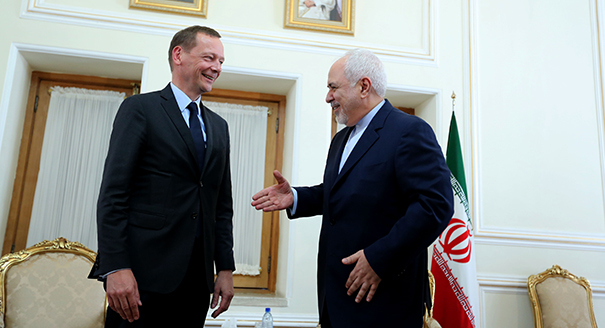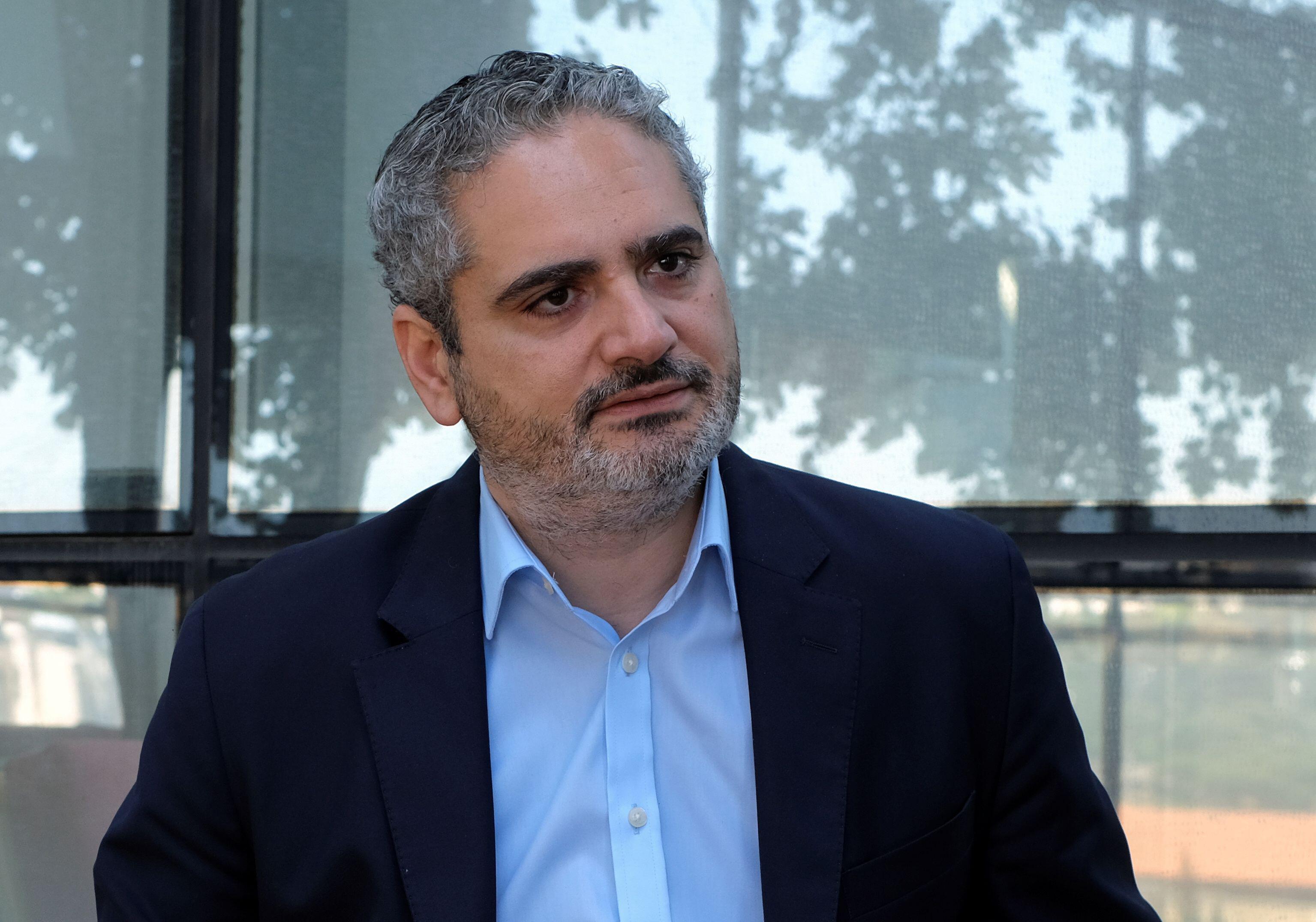A coalition of states is seeking to avert a U.S. attack, and Israel is in the forefront of their mind.
Michael Young
{
"authors": [
"Michael Young"
],
"type": "commentary",
"blog": "Diwan",
"centerAffiliationAll": "dc",
"centers": [
"Carnegie Endowment for International Peace",
"Malcolm H. Kerr Carnegie Middle East Center"
],
"collections": [
"Inquiring Minds"
],
"englishNewsletterAll": "menaTransitions",
"nonEnglishNewsletterAll": "",
"primaryCenter": "Malcolm H. Kerr Carnegie Middle East Center",
"programAffiliation": "MEP",
"programs": [
"Middle East"
],
"projects": [],
"regions": [
"Iran",
"Middle East",
"Eastern Europe",
"Europe",
"Western Europe"
],
"topics": [
"Political Reform"
]
}
Source: Getty
A regular survey of experts on matters relating to Middle Eastern and North African politics and security.
Francois Nicoullaud | Former French ambassador to Iran (2001–2005)
Yes, it does, but it still needs a lot of hard work and diplomacy to assemble an attractive package of mutual concessions from Iran and the United States. Tehran has to consider a gesture visible enough to convince Washington to answer in the same way. It could, for instance, offer to switch off part of its 5,060 centrifuges active in the Natanz enrichment complex. This would make no difference for the future of its nuclear program but could rightly be presented as a significant slowdown of its sensitive enrichment activities.
The United States could reciprocate by allowing two important clients for Iranian oil, China and India, to resume at least part of their purchases. It could also authorize the sale to Tehran of passenger aircraft, as already envisaged in the nuclear deal. This would be good both for Iran and the U.S. aircraft industry. It would be good also for President Donald Trump as he prepares for his reelection campaign.
Sanam Vakil | Professorial lecturer in the Middle East Studies Department at the Johns Hopkins School of Advanced International Studies in Bologna, Italy, senior research fellow at Chatham House, the Royal Institute of International Affairs
Europe has a small window of a few months to keep the Joint Comprehensive Plan of Action (JCPOA), the nuclear deal with Iran, on ice. To do so, it must wholeheartedly support French President Emmanuel Macron’s diplomatic offer to bridge the divide between Tehran and Washington with a “mutual freeze” scenario—whereby the United States would freeze its “maximum pressure” campaign on Iran by reinstating some waivers for Iran to sell its oil, and Iran would freeze its decision to no longer comply with the nuclear deal by going back to implementing its provisions. This is no easy task as Tehran will seek incentives such as the operation of the INSTEX financing mechanism among other carrots in order to suspend its further breaches of the JCPOA.
Macron, in turn, must convince President Donald Trump to provide an in-kind concession of sanctions relief rather than doubling down on his maximum pressure campaign. This deal could temporarily freeze tensions and open the door to Europe-led mediation on a JCPOA 2.0. Should this effort fail, however, and Iran continue to breach its nuclear commitments, Europe would have no choice but to activate the JCPOA’s dispute resolution mechanism. This process would undoubtedly lead to a snapping back of sanctions, push Iran to withdraw from the JCPOA, bringing about the agreement’s death, and potentially even lead to a military conflict in the Middle East.
Alain Gresh | Editor of OrientXXI.info
There is no doubt that France, the United Kingdom, and Germany want to salvage the Joint Comprehensive Plan of Action, the nuclear deal with Iran. However, they are convinced, as is President Donald Trump, that new negotiations are necessary—including on Iran’s missile program and its policies in the wider Middle East. In exchange for such negotiations, Washington could agree to alleviate some of the sanctions affecting the Islamic Republic.
The problem is that nobody knows if Trump and Iran will agree to such an approach, while at the same time Iran is very suspicious of Europe. Indeed, in two years the Europeans have only introduced the very weak INSTEX financing mechanism to permit Iran to engage in some economic transactions, while most European companies have already left the country. Whatever we think of Tehran’s policies, it is Trump who reneged on an agreement signed by the United States and who has threatened Europe through extraterritorial sanctions. Only political will in Europe to confront the United States (and not only Iran) could give Europe a voice in this very dangerous crisis. However, this is an improbable scenario.
Cornelius Adebahr | Nonresident fellow at Carnegie Europe, Brussels
Despite its multilateral nature, the Joint Comprehensive Plan of Action (JCPOA), the nuclear deal with Iran, has always depended on two key signatories: Iran and the United States. With the latter not just abandoning but trying to kill the deal, and Tehran no longer ready to abide by it while foregoing its benefits, the agreement cannot survive for long, regardless of what the Europeans—or for that matter the Chinese or Russians—are doing.
Yet the escalation of the past two months has shown that rather than narrowly focusing on the nuclear deal, the issue is about finding a regional security arrangement for all countries concerned. Yes, Iran’s clout has grown over the past two decades, and it is no benign actor, domestically or internationally. Yet it has become powerful also because of failed U.S. policies—from the invasion of Iraq to Washington’s increasingly blind support for Israel and Saudi Arabia.
The Europeans will therefore have to develop an alternative approach, whose reference point is neither the JCPOA’s fourth anniversary, nor even the four decades since the Islamic revolution and the Camp David Accords. Instead, it means coming to terms with the repercussions that the 1919 Paris peace conference, with its deliberate drawing of borders, still have on today’s states and peoples of the once Fertile Crescent. A century later, the Europeans should contribute to developing a cooperative rather than a colonial regional order.
Carnegie does not take institutional positions on public policy issues; the views represented herein are those of the author(s) and do not necessarily reflect the views of Carnegie, its staff, or its trustees.
A coalition of states is seeking to avert a U.S. attack, and Israel is in the forefront of their mind.

Michael Young
The country’s leadership is increasingly uneasy about multiple challenges from the Levant to the South Caucasus.

Armenak Tokmajyan
In an interview, Shahla al-Kli discusses the country’s parliamentary elections and what they reveal.
Rayyan Al-Shawaf
Ankara may seek to annul a maritime deal with Cyprus and expand its influence in the next parliament.

Mohanad Hage Ali
Recent election results have placed Nouri al-Maliki in a strong position to name the next prime minister.
Wladimir van Wilgenburg